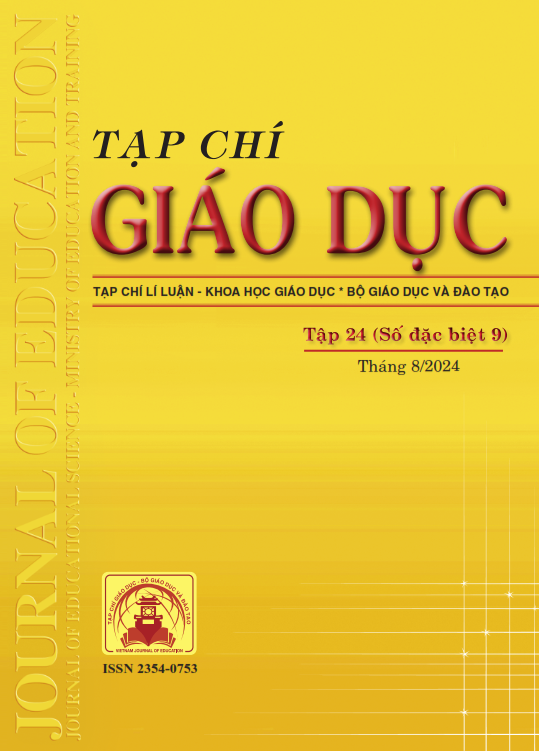Bước đầu khảo sát mô hình ẩn dụ “Tri thức là tiền tệ” Từ góc nhìn của ngôn ngữ học tri nhận
Tóm tắt
In modern society, knowledge and money play extremely important roles, attracting the attention of all social subjects. In this context, the authors conducted a study on the cognitive metaphorical model of “KNOWLEDGE IS CURRENCY” in Vietnamese today. Through the process of collecting and analyzing 690 metaphorical expressions related to knowledge and money from the Vietnam Journal of Science and Technology published from January 2021 to December 2022, the study provides new insights into how Vietnamese people perceive and use knowledge in modern society. The findings of this study can be applied to many different fields, contributing to shaping regulations to make knowledge a tool for promoting sustainable social development.
Tài liệu tham khảo
Andriessen, D. (2007). Knowledge as love; how metaphors direct the waywe manage knowledge in organizations. In Proceedings of the 5th Critical Management Society Conference, 11-13 July, Critical Management Society, Manchester, UK.
Ban Chấp hành Trung ương (2022). Nghị quyết số 27-NQ/TW ngày 09/11/2022 của Hội nghị lần thứ 6 Ban Chấp hành Trung ương Đảng khóa XIII về tiếp tục xây dựng và hoàn thiện Nhà nước pháp quyền xã hội chủ nghĩa Việt Nam trong giai đoạn mới.
Bratianu, C., & Andriessen, D. (2008). Knowledge as energy: A metaphorical analysis. In D. Harorimana & D. Watkins (Eds.). Proceedings of the 9th European Conference on Knowledge Management (pp. 75-82). Southampton Solent University, UK, 4-5 September 2008. Reading, UK: Academic Publishing Ltd.
Drucker, P. F. (2009). Post-Capitalist Society (2nd ed.). Harper Collins.
Halliwell, S. (1998). Aristotle’s Poetics. Chicago: The University of Chicago Press.
Haugbølle, K. (2017). Four metaphors on knowledge and change in construction. In K. Haugbølle (Ed.), Integrating information in built environments (1st ed., pp. 20). Routledge.
Hoàng Phê (chủ biên, 2003). Từ điển tiếng Việt. Trung tâm Từ điển học.
Nonaka, I. (1990). Management of Knowledge Creation. Nihon Keizai Shinbun-sha.
Johnson, G., Whittington, R., Scholes, K. (2011). Fundamentals of Strategy. Financial Times Prentice Hall.
Lakoff , G., & Johnson, M. (1980). Metaphor We Live By. The University of Chicago Press.
Lakoff, G. (1993). The contemporary theory of metaphor. In A. Ortony (Ed.), Metaphor and thought (pp. 202-251). Cambridge University Press.
Marx, K. (1906). Capital: A Critique of Political Economy. C.H. Kerr & Company.
Steen, G. J., Dorst, A. G., Herrmann, J. B., Kaal, A. A., Krennmayr, T., & Pasma, T. (2019). MIPVU: A manual for identifying metaphor-related words. In S. Nacey & W. G. Reijnierse (Eds.), Converging Evidence in Language and Communication Research: Metaphor identification in multiple languages: MIPVU around the world (Vol. 22, pp. 23-40). John Benjamins Publishing Company.
West, D. (2007). A. Richards's Theory of Metaphor: Between Protocognitivism and Poststructuralism. In L. Jeffries, D. McIntyre, & D. Bousfield (Eds.), Stylistics and social cognition (pp. 1-18). Bloomsbury Academic. https://doi.org/10.1163/9789401200646_002
Đã Xuất bản
Cách trích dẫn
Số
Chuyên mục
Giấy phép

Tác phẩm này được cấp phép theo Ghi nhận tác giả của Creative Commons Giấy phép quốc tế 4.0 .












